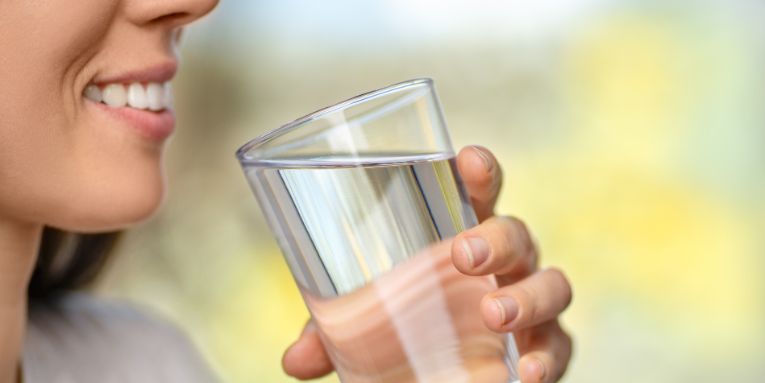New Zealand is known the world over for its clean and green image.
But, does that mean that our drinking water is clean and pure too?
In comparison to drinking water throughout the rest of the world, yes, it kinda is!
But, there are some things about NZ drinking water that you need to know.
Let’s go fact finding!
NZ Drinking Water: What You Need To Know
Natural Purity
New Zealanders are pretty lucky when it comes to water. A significant portion of our drinking water comes from natural sources like rivers, dams and groundwater. That water is all pretty pure to begin with due to our nation’s environmental protection policies and low industrial activity. Although we do experience some pollution from agricultural runoff, particularly from dairy farming.
Even though our water has natural purity, town supply is still treated to ensure its safety for drinking, bathing and cooking with. This includes a process of screening to remove dirt and debris, filtering to remove smaller particles and disinfecting to kill germs.
The exact treatment process will depend on where you live in NZ as some sources are cleaner than others, but will typically include chlorination and sometimes fluoridation to meet national drinking water standards.
Taumata Arowai
Did you know that New Zealand established a new regulatory body called Taumata Arowai in 2021? An independent water services regulator, Taumata Arowai’s job is to oversee the safety and quality of NZ drinking water, wastewater and stormwater services.
Their motto is ‘Healthy water. Healthy people.’ and their mission is to make sure that all communities have daily access to safe and reliable drinking water. They do this by supporting the water services sector to improve its performance and environmental outcomes.
To Fluoridate Or To Not Flouridate
Fluoride is often added to NZ drinking water as a way to help prevent tooth decay. The debate about whether all town supply drinking water should be fluoridated has been raging in NZ for decades. The decision about fluoridation rests with your local council, but the government is making moves to have this decision centralised. Some believe fluoridation is a great public health measure, while others disagree.
There are also practicality measures that prevent fluoridisation. Some smaller water treatment plants do not have the technical capacity to undertake the process and there are also cost considerations for smaller communities.
On the whole, about 60% of New Zealanders have access to fluoridated water. Most major towns enjoy fluoridated water - you can find out if your town is on the list here. Some towns are not fluoridated due to anti-fluoride decisions, whereas others are smaller more isolated communities. There are also the people who are on tank water or other independent water collection supplies who fall outside that 60%.
Supply and Demand
While New Zealand is lucky to have lots of freshwater sources, they are not endless. Some regions will experience supply issues, particularly during long, dry summers. Water restrictions are sometimes imposed to ensure there is enough to go around.
Doing what you can to conserve water all year round can help to reduce the pressure on our water resources. A water filtration system in your home can reduce water waste and improve your efficiency of use, so it can be great for sustainability.
Groundwater Use
Nature has its own water tanks, known as aquifers. When it rains, water soaks into the soil, gravel and sand, and filters down into the ground. It is then captured below the earth’s surface in cracks between rocks and in the pore spaces between grains of sand and gravel creating an underground body of water known as an aquifer.
Groundwater is then drawn from these aquifers in the earth as a source of drinking water, usually via wells and pump systems. As much as 40% of New Zealander's drinking water is sourced from groundwater.
Wai - A Taonga
Water, or wai, has a deep significance in New Zealand. Considered to be a treasure, a taonga, it is essential that the health and purity of our water sources remain as they are integral to the wellbeing of the land and its people. This perspective has positively influenced many of the water management practices here in Aotearoa.
Do I Need A Water Filter?
With the purity of New Zealand’s water, do I need a water filter at home and work?
The answer is still a resounding yes. While our source water is pretty impressive, there are still plenty of opportunities for contaminants to enter between the start and endpoints. Having a water filter in your home ensures that you are always drinking clean, fresh water.
Here are just a couple of reasons why water filters are beneficial:
- Removes the taste and odour of the chlorine used to treat your water supply
- Eliminates contaminants like pollution, pesticides, microplastics and dirt particles
- An extra layer of protection that makes your water safe to drink 100% of the time
- Reduction of sediment, rust from water pipes and other small particles
- Reduction of hard water minerals
- Filtering out potential irritants or pathogens that can trigger deficiencies or allergies
- Removal of bacteria and other water-borne nasties
- Removes the need for bottled water, reducing your environmental impact
So, as you can see, water filters are a great addition to any home or workplace. The great news is that there is a huge variety to choose from so you can get the one that suits your needs.
Under sink, benchtop, whole house, tank systems, or even filters for your pool and garden hose, Water Filters Online has the filter for you! Browse our range now or get in touch with our friendly team for advice and support.

